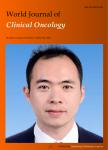Overcoming endocrine resistance in metastatic breast cancer: Current evidence and future directions
Overcoming endocrine resistance in metastatic breast cancer: Current evidence and future directions作者机构:Institute for Cancer Research and Treatment at Candiolo University of Torino Medical School FPO(Fondazione del Piemonte per l'Oncologia) Department of Oncology University of Torino Medical School
出 版 物:《World Journal of Clinical Oncology》 (世界临床肿瘤学杂志(英文版))
年 卷 期:2014年第5卷第5期
页 面:990-1001页
学科分类:1002[医学-临床医学] 100214[医学-肿瘤学] 10[医学]
主 题:Everolimus Mammalian target of rapamycin PI3K inhibitors Estrogen receptor Endocrine resistance
摘 要:About 75% of all breast cancers are estrogen receptor(ER)-positive. They generally have a more favorable clinical behavior, prognosis, and pattern of recurrence, and endocrine therapy forms the backbone of treatment. Anti-estrogens(such as tamoxifen and fulvestrant) and aromatase inhibitors(such as anastrozole, letrozole, and exemestane) can effectively control the disease and induce tumor responses in a large proportion of patients. However, the majority of patients progress during endocrine therapy(acquired resistance) and a proportion of patients may fail to respond to initial therapy(de novo resistance). Endocrine resistance is therefore of clinical concern and there is great interest in strategies that delay or circumvent it. A deeper knowledge of the molecular mechanisms that drive endocrine resistance has recently led to development of new strategies that have the promise to effectivelyovercome it. Many resistance mechanisms have been described, and the crosstalk between ER and growth factor receptor signaling pathways seems to represent one of the most relevant. Compounds that are able to inhibit key elements of these pathways and restore endocrine sensitivity have been studied and more are currently under development. The aim of this review is to summarize the molecular pathophysiology of endocrine resistance in breast cancer and its impact on current clinical management.




